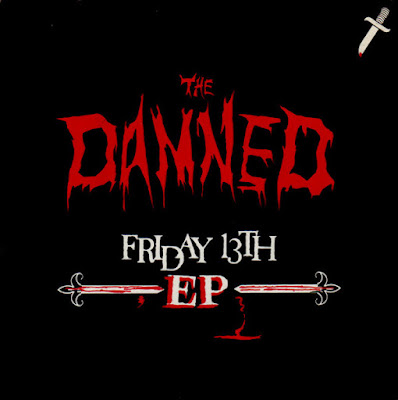9 weeks until w/e 4th August 1984
Here’s where things get tricky and a messy, charred hole emerges in our narrative. In the summer of 1984, IPC went on strike putting all of their publications either completely out of print (in the NME’s case) or operating to a greatly reduced degree. Some of IPC’s comics made it out into the shops, for example, but with reduced colour and using repeated strips from the seventies. This meant that if you were a kid in 1984 you perhaps had to deal with the unexpected surprise of Sid’s Snake out of Whizzer and Chips alarming a punk rocker, or found yourself trying to make sense of a background gag about some 1978 chart hit you couldn't remember. Everything, very suddenly, went black and white and childhoods were catapulted backwards in time.
For the older brothers and sisters of those kids, however, it just went black. There was nothing emerging from Kings Reach Tower, so if they wanted a weekly music fix, they had to read Sounds, Record Mirror or Number One magazine instead, none of which really captured the tastes or tone of their favoured Express.
More problematic than that, certainly where I'm concerned here and now in 2025, it also meant that absolutely no NME indie charts were published for that entire period either, so I’ve nothing to show you for summer 1984; however, one possible compromise emerges from this mess.
The Independent Singles Chart compiled by MRIB continued as usual, so we can get a likely sense of what might have been number one from the data presented there. This should be taken with a pinch of salt. MRIB’s chart tended to treat pop hits by the likes of Black Lace and Renee and Renato with much more favour than the NME’s somewhat more streamlined, specialist approach. In the summer of 1984, for example, Black Lace’s “Agadoo” got to the top spot on the MRIB Indies, but due to its more modest placing in the NME’s listings, we won’t be discussing it at length on this blog (something of a shame as it would have presented an interesting challenge for me, even if I doubt anyone would have bothered to read my subsequent thoughts unless I turned them into some kind of “Ahhhh! But it is pop perfection, do you see?” styled clickbait).
As a result, here are the MRIB Number Ones for that period, presented more briefly than usual, and to be treated with kid gloves by everyone reading them; none will be added to the Spotify playlist of NME Number Ones or referred to in any of the blog’s lists. These are only possible lost number ones, some more likely than others, but not to be treated as "official" chart toppers in the NME listings.
1. The Cult – Spirit Walker (Situation Two) – one week on w/e 2nd June

Given the way this one was galloping up the NME Indies when we left them, prodding away at a track whose sales were already descending sharply (“Pearly Dewdrops Drops”) I see no reason to doubt this one would have got to the top; but having said that, this single feeble week at the top of the MRIB charts doesn’t exactly point towards a dominant presence.
“Spiritwalker” saw the final emergence of The Cult following the dissolution of Southern Death Cult and the amendment of the subsequently named Death Cult. The group, like some kind of chemical conglomerates company who were desperately perfecting their name to make it sound less garbled to the public, obviously realised keeping things sharp and simple was best.
It’s tempting to say that “Spiritwalker” was evidence of this tightened and more commercial ambition, but in reality the progression feels very slight. The opening introduction of the track is the biggest difference, acting as a very trad rock, hollered clarion call to listeners – as a non-fan, I was genuinely surprised by how engrossed I was in the first few seconds when I played it back for the first time in years.
What happens after that is a strange mixture of more Death Cultishness combined with occasional flashes and sparks of classic rock fetishism. The rhythm section certainly still have one foot in the gothic grave – the bass guitarist rumbles and rattles out root notes like a Peter Hook inspired pro, and the drummer pounds and thuds on the skins rather than the metalwork like a medieval minstrel. Elsewhere in the group, however, a clear love of noticeable guitar hero licks is emerging from Billy Duffy, and Ian Astbury is now starting to sound fully in command.





